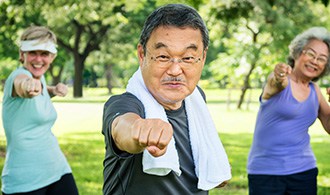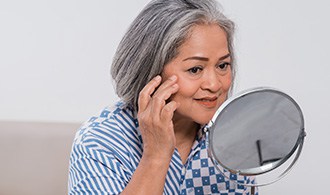The Keys to Ageing Healthily

Changes to our physical and mental health are often signs we will notice as we age. Besides fretting over wrinkles and grey hair, these aspects can make us feel vulnerable as we tackle the challenges of ageing.
While inevitable, this does not mean we have to deal with the negative transitions that come with ageing. Here are some health tips and habits that will help you embrace ageing with confidence.
Stay Up-to-date on Health Screening
Regular health screening helps detect potential health risks and allows early intervention before serious complications arise. A comprehensive screening can also assess your current health status based on your risk factors such as a family history of medical conditions.
If you have not gotten a health checkup in years, it is probably time to schedule one. Speak with a doctor if you are unsure of the type and frequency of tests you need.
Get Physically Active
Being physically active is part of the healthy ageing journey. Exercising provides several health benefits such as lowering your risk of chronic diseases, improving mobility, cognitive health, sleep quality, and more.
According to the physical activity guidelines from the Health Promotion Board, adults are recommended to achieve at least:
- 150 minutes of activities with moderate intensity (e.g. brisk walking and cycling); or
- 75 minutes of vigorous intensity (e.g. jogging and swimming) activities weekly.

It is never too late to exercise. Light exercises such as brisk walking are easy workouts to help you get started on your fitness journey. If you prefer higher intensity workouts, activities like aerobics, jogging, and dancing are great options for strengthening muscles and improving flexibility.
It is, however, important for seniors who have been living a sedentary lifestyle to go for a health checkup prior to starting any exercise regime. Individuals with existing medical conditions should also consult their family doctor to determine suitable exercises to suit their needs.
Maintain a Proper Diet
Besides exercise, having a healthy and balanced diet is a step towards achieving the goal of healthy ageing. Below is a recommended guideline on what and how much you should eat for a well-balanced meal:
- Quarter plate of protein such as fish and tofu
- Quarter plate of wholegrains such as brown rice and whole wheat pasta
- Half plate of fruits and leafy vegetables
Processed foods that are high in fats, sugar, or sodium can cause inflammation in your body and accelerate the ageing process. It is therefore wise to consume these types of foods in moderation.
Our appetite decreases and nutritional needs change as we age, making it more difficult to absorb nutrients effectively. Incorporating supplements into your diet can be a great way to help meet your daily nutritional requirements. Remember to consult your doctor before taking any supplement to ensure they are safe and suitable for your specific needs.
Staying hydrated is also essential for keeping your body healthy and functioning at its best. Drinking six to eight glasses of water daily can have numerous benefits such as promoting better digestion, preventing dehydration, and enhancing cognitive function.
Protect Your Skin
Our skin becomes more vulnerable to damage from the sun and other environmental factors as we age. Keep in mind to wear sunscreen and avoid excessive sun exposure to protect your skin.

Get Sufficient Sleep
Long-term sleep deprivation has been associated with a range of health issues. These include premature ageing, weight gain, weakened immunity, and an increased risk of heart diseases and infections.
This is why establishing a good sleep routine is important. Most adults require at least seven to eight hours of sleep every night for optimal health.
- Create a comfortable sleeping environment: Ensure your sleeping space is cool, dark, and quiet. If possible, invest in a comfortable mattress and pillow that support your body.
- Limit caffeine and alcohol intake: Caffeine and alcohol can interfere with sleep quality and disrupt your sleep-wake cycle. Avoid consuming them in the hours leading up to bedtime.
- Establish a consistent sleep schedule: Going to bed and waking up at consistent times each day can help regulate your body’s internal clock and improve sleep quality. This can be especially important for people who struggle with insomnia or other sleep disorders.
- Consider sleep aids: There are a variety of sleep aids available, including melatonin supplements and prescription medications. It is best to check with your doctor first before taking them.
Prioritise Your Mental Well-being
A happy and stress-free life will keep you healthy as you age. Here are a few ways to care for your mental health:
- Connect with friends and loved ones, or build social networks with individuals of similar interests.
- Engage in hobbies or activities that will bring you joy.
- Try meditation or yoga to manage your stress.
- Set personal goals that will make you feel accomplished once they are completed.
As we age, it can be hard to accept changes especially when familiar aspects of our lives have shifted. It is natural to feel overwhelmed by the transitions that follow with old age. By engaging in healthy activities and making positive lifestyle choices, you can overcome the challenges of ageing and embrace them with a smile. By focusing on the positive aspects, we can continue to lead healthy and fulfilling lives in our silver years.



